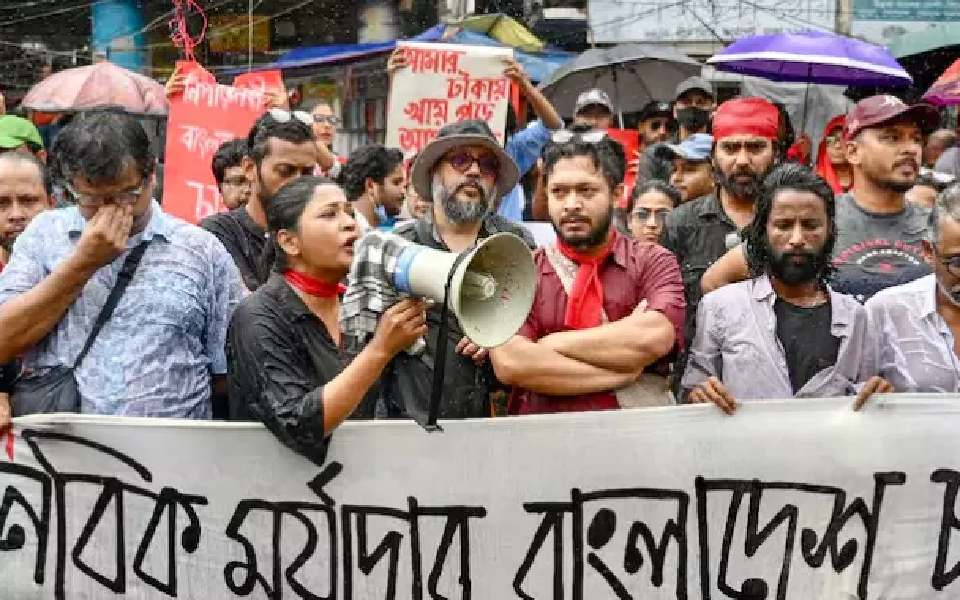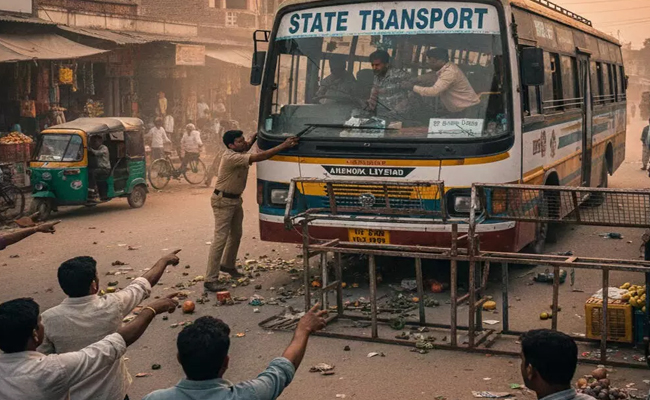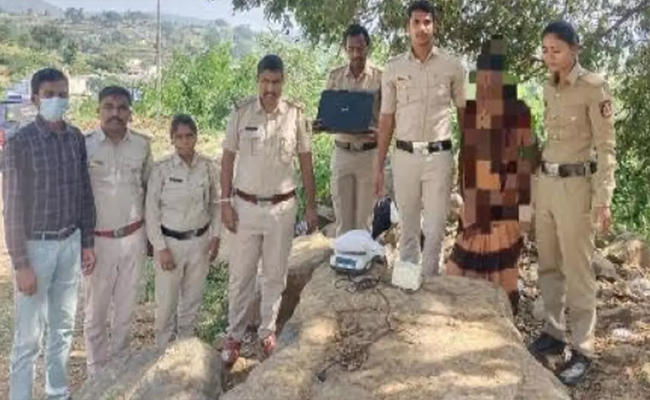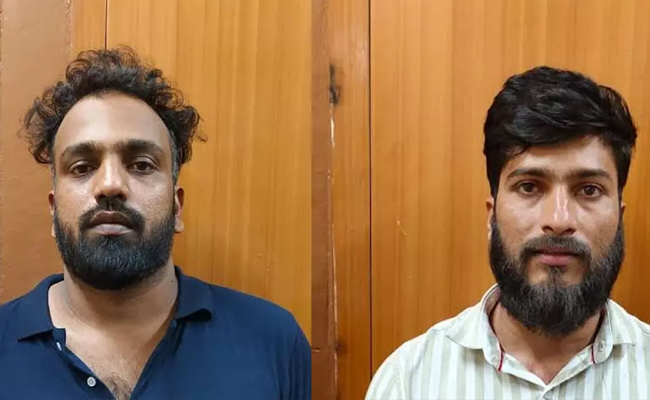Dhaka, Aug 3: Tension gripped Bangladesh afresh on Saturday after leaders of the student movement refused Prime Minister Sheikh Hasina’s invitation for talks and demanded her resignation, while protesters laid siege on major streets in the capital, days after more than 200 people died in anti-quota protests.
Bangladesh recently witnessed violent clashes between the police and mostly student protesters demanding an end to a controversial quota system that reserved 30 per cent of government jobs for relatives of veterans who fought in Bangladesh's War of Independence in 1971.
Witnesses said students protesting blocked major roads of Dhaka causing traffic snarls while officials said security forces were ordered to keep intensified vigil as protesters started rallying at different city points.
“We announce the abolition of the government and the fascist regime. That's why we call for a student uprising. We want to build a Bangladesh where autocracy will never return. Our sole demand is the resignation of this government, including Sheikh Hasina, and the end of fascism," Nahid Islam, a key coordinator of the Anti-Discriminatory Student Movement, said at a rally at the Central Shaheed Minar here.
“The government now says the gates of Ganabhaban are open for talks. We believe she (Sheikh Hasina) has already understood that the doors of Ganabhaban must remain open. We demand Sheikh Hasina's resignation, including the entire cabinet. Not only should she resign, but she should also be brought to justice for all the murders and disappearances in the country," he said.
Islam said the students don’t expect justice from the government, as he blames the government for the deaths and disappearances.
“This government has killed people and disappeared bodies. How will those who committed the murders provide justice? We don't expect justice for murder from this government. People from all walks of life are being killed, abducted, arrested, and tortured. On the one hand, arrests and torture are being carried out, and on the other, we are being called to dialogue,” he said.
On Friday, Prime Minister Hasina urged the agitating students to meet at her Ganabhaban official residence for talks to end the violence over the quota system in government jobs.
Her call came a day after new protests erupted on Friday, leaving two people dead and more than 100 injured as over 2,000 protesters gathered in parts of the capital, some shouting “down with the autocrat” and demanding justice for victims.
“I am saying again, they (student leaders) can come to me for talks if they want they can bring with them their guardians as well anytime,” she said during a meeting with leaders of different professional groups.
“The door of Ganabhaban is open (for them),” she said.
"I want to listen to them. I do not want conflict," she said while ruling Awami League sources said three party leaders were tasked to communicate and convince the anti-quota movement coordinators.
Meanwhile, two police officials were suspended by higher authorities for their “unprofessional conduct”. The officials fired gunshots that killed a second-year student of Northwestern Rangpur University Abu Sayeed, the first casualty during the protest on the university campus, intensifying the student's rage.
Video footage and photos showed Sayeed standing, arms spread wide, alone, challenging the police crackdown against protesters when a police officer suddenly shot him several times.
However, coordinators of the Anti-Discrimination Student Movement said on Friday that they had no plan to hold talks with the government, and overnight, they called a nationwide street protest and “all-out non-cooperation” or civil disobedience campaign.
One of the six coordinators who were earlier detained for their “own safety” in detective police custody and freed after they announced the withdrawal of their movement on Friday said they were forced to give the statement.
"When we were detained in the office, we were asked to meet with the Prime Minister and suspend the movement. There was even a plan to take us to Ganobhaban forcibly,” one of the coordinators Asif Mahmud said in a Facebook post.
"We are ready to pay the price of an uncompromising stance, even if it means death. We call for the participation of every citizen of Bangladesh in the student-citizen uprising," Asif wrote.
Let the Truth be known. If you read VB and like VB, please be a VB Supporter and Help us deliver the Truth to one and all.
Bengaluru: Vidyaranyapura police have arrested four persons, including a man posing as a Police Sub-Inspector (PSI), for allegedly breaking into a house, threatening the occupants, and extorting money while wearing police uniforms.
The arrested accused have been identified as Mallikarjuna, Pramod, Vinay, and Hrithik.
Police said the accused had hatched a plan to pose as police personnel, conduct fake raids, and extort money from residents by intimidation.
ALSO READ: Bantwal police arrest two men for illegal sale of narcotics, seize two vehicles, 810 gm ganja
According to the police, Mallikarjuna had failed the PSI examination twice and later falsely projected himself as a PSI. He allegedly conducted photo shoots in his hometown, Siraguppa, wearing a police uniform, baton, cap, and shoes, claiming to be serving as a PSI in Bengaluru.
On December 7, the four accused allegedly went to the house of Naveen in the Vidyaranyapura limits, threatened him with a stick and an iron rod, and claimed they had information that he was selling ganja. Under the pretext of searching, they allegedly extorted ₹87,000 through bank transfer, ₹53,000 in cash kept in the house, and ₹2,000 from his wallet.
Following Naveen’s complaint, Vidyaranyapura police registered a case and launched an operation, leading to the arrest of all four accused. Police have seized ₹45,000 in cash and the car used to commit the crime.
Further investigation is underway.





